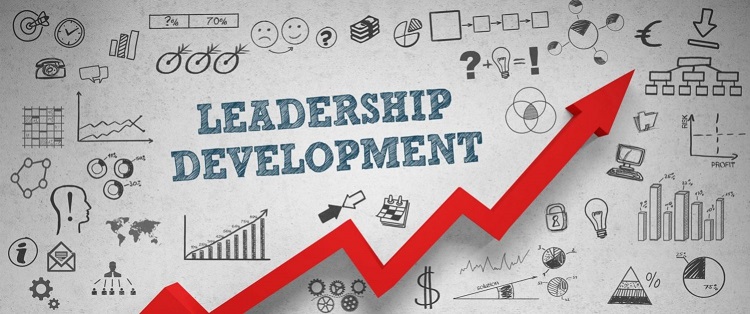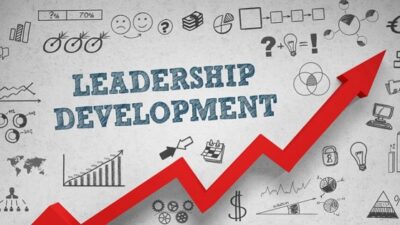Table of Contents
Key Takeaways:
- Leadership challenges promote innovation, creative problem-solving, and forward-thinking solutions.
- Storytelling enhances communication skills, builds trust, and inspires teams.
- Role-play exercises develop empathy and emotional intelligence in leaders.
- Collaborative puzzle solving activities improve teamwork, communication, and decision-making.
- Outdoor adventures build trust, communication, and observation skills in leaders.
- Diversity workshops create an inclusive work environment that drives creativity and performance.
- Presentation skills are essential for leaders to effectively communicate their vision.
- Active listening exercises enhance understanding and connection within teams.
- Negotiation simulations develop conflict resolution and consensus-building skills in leaders.
- Personality assessments provide insights into strengths and areas of growth for leaders.
- Mindfulness practices cultivate focus, resilience, and emotional intelligence in leaders.
- Mentorship programs facilitate knowledge exchange and professional growth for leaders.
Inspiring Leadership Activities
Leadership challenges are essential for fostering innovation within teams and organizations. These challenges create opportunities for leaders to think outside the box, encourage creative problem-solving, and drive forward-thinking solutions. By presenting leaders with complex scenarios that require innovative thinking, they can develop their ability to inspire and motivate their teams to find unique and effective solutions.
The power of storytelling in leadership development cannot be underestimated. Stories have the ability to captivate and inspire, making them a powerful tool for leaders to communicate their vision and values. Through storytelling, leaders can connect with their team members on an emotional level, helping them understand the purpose and importance of their work. By incorporating storytelling into leadership development activities, leaders can enhance their communication skills, build trust, and inspire their teams to achieve extraordinary results.
Building empathy and emotional intelligence is crucial for effective leadership. Role-play exercises provide valuable opportunities for leaders to step into others’ shoes and understand different perspectives. By simulating real-life scenarios, leaders can practice active listening, conflict resolution, and empathy. These activities allow leaders to develop a deeper understanding of their team members’ needs and concerns, enabling them to build stronger relationships and foster a more inclusive and collaborative work environment.
Team Building Activities for Leadership Development
Collaborative puzzle solving activities can strengthen problem-solving skills within a team. By working together to solve complex puzzles or challenges, team members can improve their communication, critical thinking, and decision-making abilities. These activities also promote collaboration and encourage teams to leverage each other’s strengths, leading to more innovative and effective solutions.
Outdoor adventures are an excellent way to build trust and communication within teams. Activities such as ropes courses, wilderness expeditions, or team sports require participants to rely on each other, communicate effectively, and trust one another. Through these experiences, leaders can develop their ability to build healthy relationships, delegate tasks, and provide support to their team members. Outdoor adventures also serve as a platform for leaders to observe their team members’ natural strengths and weaknesses, enabling them to make more informed decisions in assigning roles and responsibilities.
Diversity workshops are essential for maximizing team synergy. In today’s globalized and diverse workplace, leaders must foster an inclusive environment that values different perspectives and experiences. These workshops provide opportunities for leaders to explore and appreciate the value of diversity within a team. By engaging in activities that promote understanding, empathy, and open-mindedness, leaders can create a collaborative work environment where everyone feels valued and respected. This inclusive culture ultimately drives creativity, innovation, and performance.
Developing Communication Skills for Effective Leadership
Presentation skills are crucial for leaders to master the art of persuasion. Leaders often have to present ideas, strategies, and plans to different stakeholders. By honing their presentation skills, leaders can effectively communicate their vision and garner support from their team and superiors. Techniques such as storytelling, visual aids, and tailoring the message to the audience can significantly enhance a leader’s ability to deliver impactful presentations.
Engaging in active listening exercises is crucial for improving comprehension and communication among team members. Respecting the thoughts and opinions of their team members is exhibited by leaders that actively listen to them. By implementing activities like reflective listening, partnered listening, and group conversations, leaders can foster an atmosphere that values open communication and makes everyone feel heard and appreciated. Leaders who actively listen might also pick up insightful ideas and viewpoints that help them make better judgements.
Negotiation simulations are valuable for leaders to shape win-win solutions and resolve conflicts effectively. These simulations provide opportunities for leaders to practice negotiation techniques, such as understanding interests, exploring alternatives, and finding common ground. By developing strong negotiation skills, leaders can resolve conflicts, build consensus, and create mutually beneficial agreements that drive team performance and productivity.
Leadership Development Activities for Self-Awareness and Growth
Personality assessments are powerful tools for leaders to discover their strengths and potential areas of growth. These assessments, such as the Myers-Briggs Type Indicator or DISC assessment, provide insights into personality traits, communication styles, and preferences. By understanding their own strengths and weaknesses, leaders can leverage their natural abilities and develop strategies to overcome their limitations.
Mindfulness practices are essential for leaders to cultivate focus, resilience, and emotional intelligence. Practices such as meditation, deep breathing exercises, and mindfulness training can help leaders manage stress, improve decision-making, and enhance self-awareness. By incorporating mindfulness practices into their daily routine, leaders can become more present, attentive, and effective in their leadership roles.
Mentorship programs are invaluable for leaders to learn from experienced leaders and gain insights from their wisdom. By pairing emerging leaders with seasoned mentors, organizations can create opportunities for knowledge exchange, skill development, and professional growth. Through mentorship, leaders can receive guidance, feedback, and support, enabling them to navigate challenges, make informed decisions, and accelerate their leadership development.
FAQ
Question: What is the purpose of leadership challenges? – Leadership challenges promote innovation, creative problem-solving, and forward-thinking solutions.
Question: How does storytelling enhance leadership communication? – Storytelling enhances communication skills, builds trust, and inspires teams.
Question: What skills do role-play exercises develop in leaders? – Role-play exercises develop empathy and emotional intelligence in leaders.
Question: How do collaborative puzzle solving activities benefit teams? – Collaborative puzzle solving activities improve teamwork, communication, and decision-making.
Question: What benefits can outdoor adventures provide for leaders? – Outdoor adventures build trust, communication, and observation skills in leaders.
Question: What is the significance of diversity workshops in leadership development? – Diversity workshops create an inclusive work environment that drives creativity and performance.
Question: Why are presentation skills important for leaders? – Presentation skills are essential for leaders to effectively communicate their vision.
Question: How do active listening exercises enhance team connection? – Active listening exercises enhance understanding and connection within teams.
Useful Resources:
- Mind Tools – Provides resources and tools for leadership development, including articles, assessments, and training materials.
- Entrepreneur – Offers a wide range of articles and resources on leadership development, entrepreneurship, and business management.
- Harvard Business Review – Publishes articles and case studies on leadership, management, and various business topics.
- – Features articles and resources for entrepreneurs and leaders, covering leadership development and business growth strategies.
- McKinsey & Company – Provides insights and research on leadership development, organizational effectiveness, and business strategy.
- The Center for Leadership at Dartmouth College – Offers leadership development programs, resources, and research-based insights.
- Association for Talent Development (ATD) – Provides resources, courses, and networking opportunities for talent development professionals, including leadership development.
- Center for Creative Leadership (CCL) – Offers leadership development programs, assessments, and research on leadership topics.















Comments